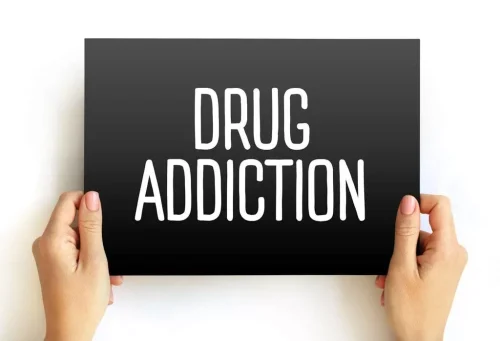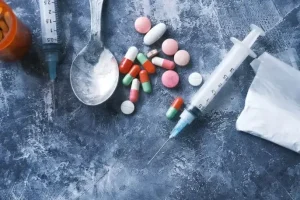
The upregulation of orexin would be expected to create a state of hyperarousal and may underlie the insomnia observed both in treated and non-treated opioid users. Preclinical studies, demonstrating that orexin microinjection into the VTA increases cocaine self-administration and reinstates cocaine-conditioned place preference, also implicate orexin in cocaine’s rewarding effects. It has been suggested that orexin is specifically engaged in substance abuse during elevated motivational states, such as when the effort to obtain the drug is high [29] or when animals are stressed [31]. This would be consistent with a state of heightened arousal that accompanies craving. These findings provide a rationale for the evaluation of orexin antagonists, such as suvorexant, a drug currently approved for use for insomnia, as therapy for substance use disorders and for the development of new ones. These agents may provide a two-fold benefit by preventing two distinct but interrelated effects of orexin, potentiation of reward and arousal effects, which could help attenuate drug reward and improve sleep disturbances.
How does alcohol withdrawal affect insomnia?
- Chronic alcohol and drug use likely alters the neurobiology of sleep and the control of REM sleep, a predominately pontine cholinergeric phenomenon.
- Alcohol interferes with the brain’s ability to receive chemical messages involved in breathing, which decreases the body’s respiratory drive and increases the likelihood of pauses in breathing.
- The DSM-5 criteria for SUD involve an important caution that tolerance development and withdrawal symptoms occurring only in the context of medically indicated use of a prescribed drug should not lead to a SUD diagnosis.
- And for more information about Myrbetriq, including details about its uses, see this article.
- As part of this 24-hour cycle, the body releases a hormone called melatonin to prepare us for sleep in the evening.
If you have symptoms of a severe allergic reaction, such as swelling or difficulty breathing, call 911 or your local emergency number right away. These symptoms could be life threatening and require immediate medical care. If you have symptoms of urinary incontinence or frequency, talk with your doctor.
How can I prevent interactions?
One of the most common consequences of the use of and withdrawal from substances of abuse is sleep disturbance. Substances of abuse affect sleep physiology, including the neurotransmitter systems that regulate the sleep-wake system. Emerging research now highlights an interactive effect between sleep disorders and substance use. New findings in alcohol and sleep research have utilized sophisticated research designs and expanded the scope of EEG and circadian rhythm analyses. Research on marijuana and sleep has progressed with findings on the effects of marijuana withdrawal on objective and subjective measures of sleep.
- Sleep efficiency follows a similar pattern, with insomnia-like levels apparent in the third week of abstinence [153].
- In contrast, other studies have reported persistent deficits [69] or a trend toward deficits [2] after as long as 1–2 years of abstinence, with complete recovery occurring only after 1–4 years of abstinence [199].
- Factors that can increase the risk of liver problems when taking Symtuza include having any liver problems, such as active hepatitis B or hepatitis C.
- This is because alcohol works as a central nervous system depressant.
Can You Drink Within Certain Limits?
When you quit taking drugs, you may get insomnia or other sleep problems, including broken sleep, strange dreams, or restless legs syndrome. In that case, it’s more likely that you’ll get an alcohol use disorder (AUD). Haney et al. found the greatest benefit regarding sleep symptoms and relapse using combination therapy with lofexidine (an alpha-2 agonist) and oral THC. However they did not report any benefit from 10 days of oral THC alone [94].
Poor connectivity (i.e., deficitsin white matter integrity) likely also contributes, although relations between evokedpotential amplitude and diffusion tensor imaging (DTI) measures of white matter integrityare yet to be tested. Interestingly, in women, while age and temporal gray matter volumeprovided the best model, the addition of diagnosis did not improve the model. Many people turn to alcohol to cope with difficult feelings, but alcohol may end up having the opposite effect if it interferes with sleep. For example, people with moderate or severe anxiety who use alcohol in hopes of sleeping better are actually more likely to have sleep problems. Similarly, studies on bereaved individuals have found that using alcohol to cope with grief increases the risk of developing major depression, which is itself a risk factor for sleep disturbances. However, in the second half of a night’s sleep, alcohol diminishes the amount of REM sleep.
- And if you’re tired in the morning, you may keep using these drugs to keep you from feeling drowsy.
- One possible explanation for the difference in findings may be related to disparate effects of THC (sleep promoting) and cannabidiol (a non-euphorigenic cannabinoid preferred in some medical preparations), which may increase alertness [150].
- Topographicdifferences in EEG spectral power during sleep evaluated in alcoholics compared withcontrols revealed that slow frequency activity was maximal over frontal scalp regions inboth alcoholics and control subjects (Colrain, Turlington,and Baker 2009b).
- Participants were considered to be chronically hazardous drinkers if they were AUDIT-C positive on three of more data collection phases (in the retrospective alcohol life-course grid).
- Alcohol initially acts as a sedative, increasing the proportion of deep sleep at the beginning of the night.
This form of REM rebound cannot explain theincreased REM in those who have been abstinent for a long time, relative to controls. It ispossible that increased REM sleep may represent a predisposition to altered sleep ratherthan a consequence of alcohol abuse; although REM is not elevated in adolescents with apositive family history of alcoholism does alcohol help you sleep (Tarokh et al.2012). Another possibility is that alcohol abuse leads to long-lastingneurochemical changes in the brain stem. Figure 2 (adapted from (Colrain, Turlington, and Baker 2009b) gives an example of theproportions of wakefulness (pre-sleep and throughout the night), and different sleep stagesin alcoholic and control men and women.

0 Familial predisposition for alcoholism effects on sleep?

This is especially helpful when you first start a new drug or combination of treatments. If you experience any of the above symptoms during Symtuza treatment, talk with your doctor right away. Your doctor will order liver function tests before and during your treatment with Symtuza. They’ll also test you for the presence of hepatitis B before prescribing this drug. Symtuza (darunavir/cobicistat/emtricitabine/tenofovir alafenamide) is a prescription drug used to treat HIV infection. If you have other questions about taking Myrbetriq with metformin, talk with your doctor or pharmacist.

Night Eating Syndrome: Symptoms, Causes, and Treatments
As noted above, in abstinent alcoholics, REM sleep disturbance remaining after acute discontinuation is predictive of relapse. We are unaware of studies regarding the presence of a REM disturbance following abstinence for other drugs of abuse and the predictive value of such a disturbance, if present, to relapse. It has been suggested that these sleep and alertness alterations, although not the primary reinforcing mechanism, function as contributing/modulatory factors in initiating and maintaining drug and alcohol abuse and as factors that increase the risk for relapse. After briefly discussing diagnostic and measurement issues, this chapter will discuss the role these sleep and alertness alterations play in initiating and maintaining alcohol and substance abuse and in relapse. We also discuss the extent to which treatment of sleep/alertness disturbances impact the risk of relapse.

0 Acute effects of alcohol on sleep
- There are therapies and nonaddictive medications (see Treatment section below) that may help with sleep in recovery.
- Certain health conditions or other factors could raise your risk of harm if you take Arimidex.
- Breathing problems — Since alcohol’s sedative effect extends to your entire body, including your muscles, it may allow your airway to close more easily while you’re asleep.
- Many theories of addiction hypothesize that stress increases vulnerability to drug abuse (34).
- Sleep fragmentation reflects awakenings or switching from a deeper to a lighter stage of sleep, and is measured by the number of switches from one stage of sleep to another, the number of awakenings, and the time spent awake after sleep onset.


Connect with us